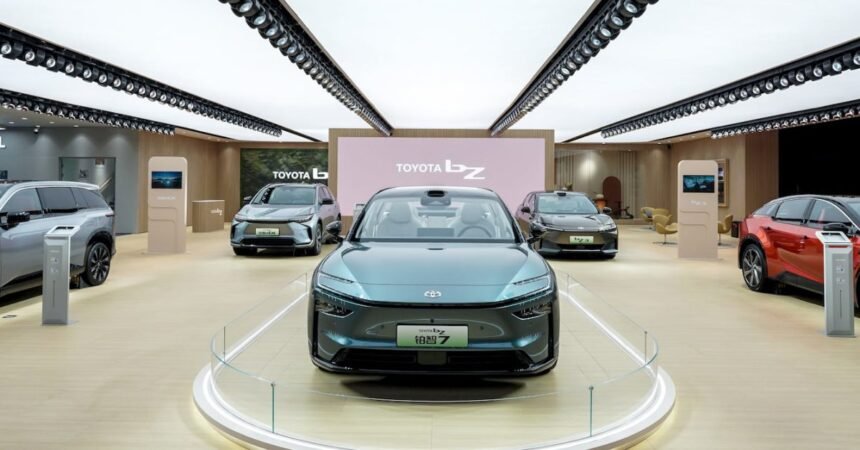Toyota is making a significant move in the world’s largest EV market by breaking ground on a new Lexus EV plant in Shanghai, China. This marks Toyota’s first fully owned manufacturing facility in the country and the second in the region, following Tesla’s footsteps.
The construction of the new plant comes after Toyota announced its plans to open a wholly-owned EV plant in China to produce new energy vehicles (NEVs) for its luxury Lexus brand earlier this year. The company finalized a deal with the Shanghai government in April to build the facility, and just over two months later, construction is already underway at an impressive pace.
Spanning approximately 1.13 million square meters, the new facility is expected to be one of Toyota’s most important plants to date. With construction set to be completed by August 2026 and production scheduled to commence in 2027, the plant will have the capacity to produce up to 100,000 NEVs annually.
The new Lexus plant will not only accelerate Toyota’s EV output but also allow the company to develop vehicles tailored to local buyers in China. The plant, located in the Shanghai Bay Area Hi-Tech Zone, will operate on a “two-line collaboration” system, enabling 24-hour uninterrupted work.
The first Lexus electric vehicle is set to roll off the assembly line in 2027, with local authorities providing generous support to Toyota. For instance, the Jinshan District Investment Promotion Office has introduced an “order-based” business agreement to address Toyota’s demand list in advance.
Toyota’s move to build the new Lexus EV plant in China is part of its strategy to keep pace with domestic EV leaders like BYD. The company has already seen success in the Chinese market with the launch of the bZ3X electric SUV, which became the best-selling foreign EV in China in April, just its second month on the market.
With the launch of the bZ5 electric SUV earlier this month, Toyota continues to expand its EV offerings in China. These advanced vehicles feature smart driving technology, large touchscreens, and additional features like a built-in refrigerator, setting them apart from traditional Toyota vehicles.
Toyota’s partnerships with tech giants like Huawei, Xiaomi, and Momenta further demonstrate the company’s commitment to innovation in the EV space. As Toyota navigates an intensifying EV price war and competition from low-cost domestic rivals in China, its new electric vehicles are proving to be a success.
In April, Toyota’s sales in China increased by 20% compared to the same period last year, with 142,754 vehicles sold. Through May, the company’s sales have continued to rise, up 7.7% with 530,000 vehicles sold. Toyota’s foray into the Chinese EV market is shaping up to be a promising venture for the automaker.







